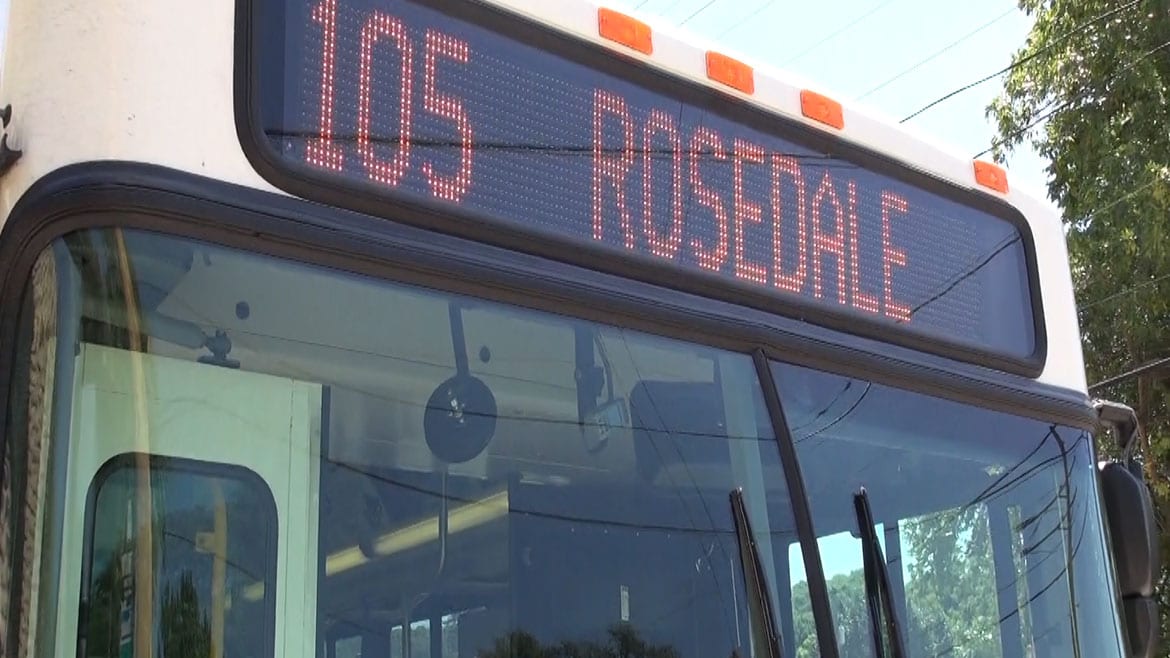New bus route addresses health needs of KCK residents The University of Kansas Medical Center is a key stop along the route

Published August 14th, 2014 at 4:07 PM
It was nearly a decade ago that the Rosedale Development Association, a nonprofit community improvement corporation, identified lack of transportation as a significant barrier for neighborhood residents who wanted better access to medical care, grocery stores and other basic services.
The feedback came via a community-needs survey conducted by a volunteer working with the organization, said Erin Stryka, program manager of the association’s Rosedale Healthy Kids program.
After a less-than-positive response from area transit authorities back then, she said, the push for a bus route serving the area languished until a coalition of neighborhood organizations and church leaders revived the idea a couple years ago. Stryka has served as the association’s point person on the project.
“It just kind of became a mission for some of us,” she said.
Stryka said proponents of the route packed the audience as elected officials with the Unified Government of Wyandotte County and Kansas City, Kan., held budget deliberations last year.
The board of commissioners agreed to allocate $250,000 to run the health-focused route, which began operation in late June as the 105-Rosedale run. The route runs between the Rosedale and Argentine neighborhoods.
Ridership is about 40 percent above the break-even point, Stryka said. The 105 is the first new route in KCK in about a decade, according to officials with the Kansas City Area Transportation Authority (KCATA).
Public transportation addresses a social-equity issue by giving low-income residents the same mobility enjoyed by more well-heeled populations, said Daniel Serda, a city planning consultant and a Wyandotte County representative on the KCATA board of commissioners.
On a more practical level, Serda cited the example of a diabetic who is relying on a friend for a trip to the doctor and has to cancel because the friend gets sick or has car problems.
“You could end up in a week or two in a health crisis that lands you in the emergency room out of something that really boiled down to the fact that your friend’s car broke down,” he said. “There is almost a level of absurdity with it, but that is the reality that a lot of folks in our community are facing.”
Explore some of the key stops along the route:
Major Funding for Health coverage on KCPT provided by Assurant Employee Benefits and the Health Care Foundation of Greater Kansas City.

